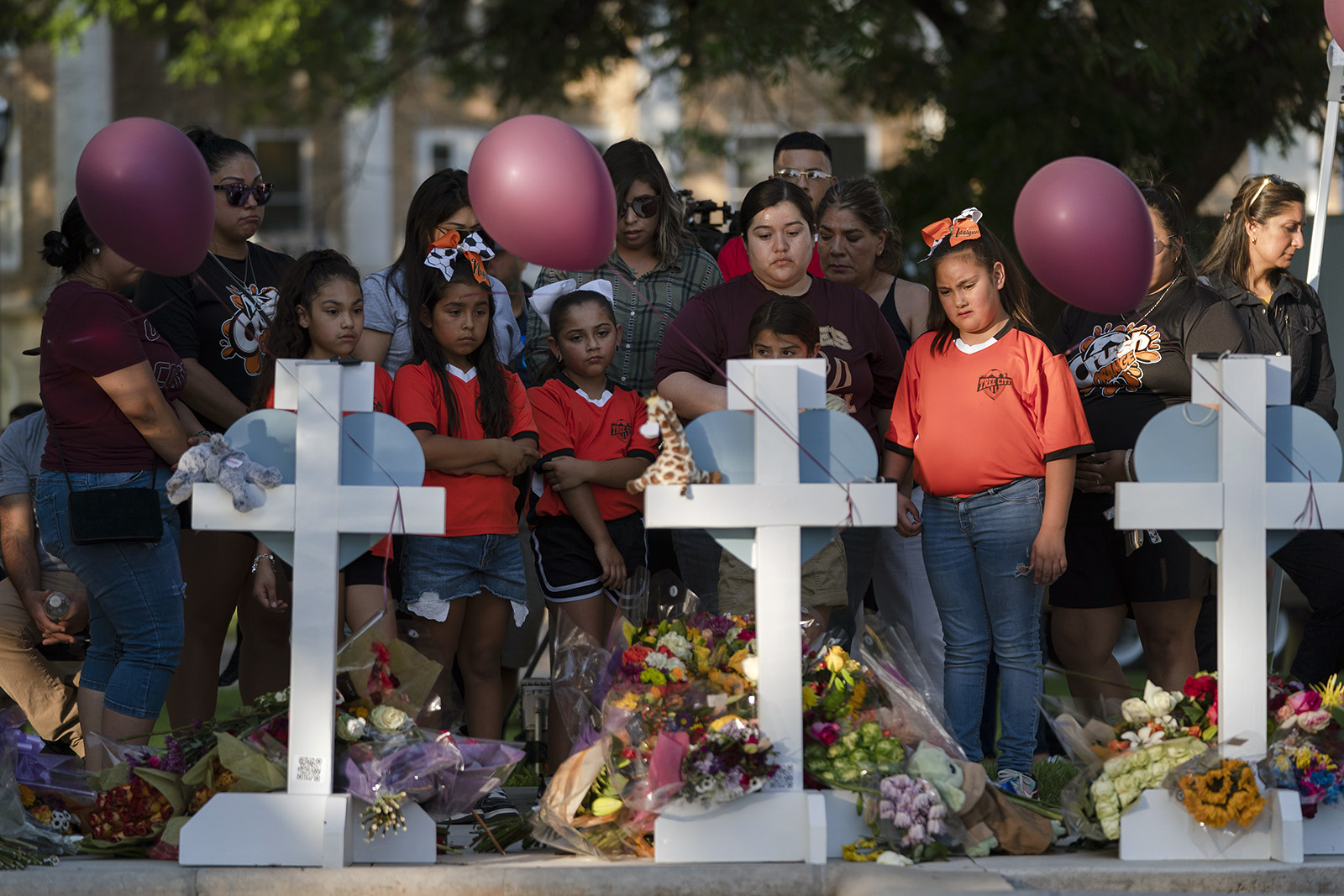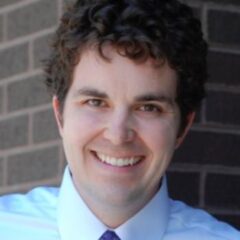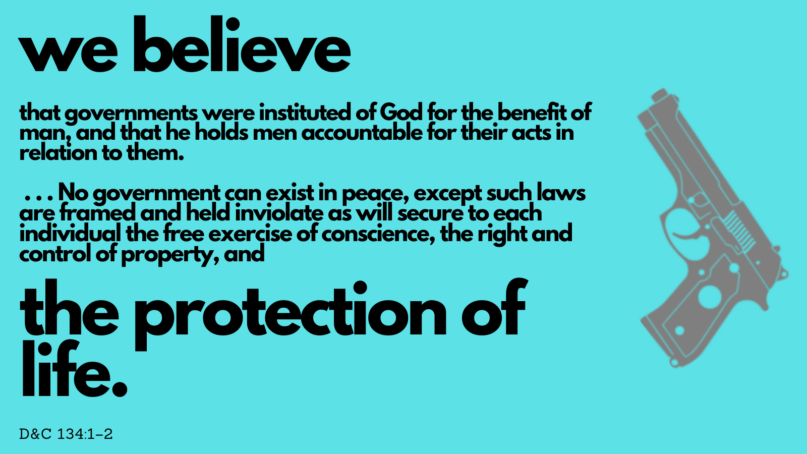A guest column by Tyler Johnson
As a cancer doctor, I spend every minute of my professional life trying to keep people alive.
I spent 10 long years training for this career-calling, sequestered in hospitals like a medical monk — giving up hobbies, sleep and most entertainment to learn how to heal.
Beyond being a doctor, I’m also a husband and dad of three active boys. That last role can also be exhausting, but my love for those little humans frequently leaves me speechless.
This is what I live for.
With this framing — that I’m a father and a healer — it will hardly shock you that the massacre in Uvalde, Texas, left me filled with anger and incomprehension. Anger, yes, toward the gunman, but even more so toward a country that has failed to respond in any meaningful way to a litany of such tragedies that now stretches over decades.
What may surprise you is this: My deep disappointment at our collective inaction springs just as much from my membership in The Church of Jesus Christ of Latter-day Saints.
It’s commonly assumed that Latter-day Saint theology only supports positions on the political right, but that assumption is flawed. I’m an advocate for more stringent and updated gun control laws precisely because I take Latter-day Scripture at its word: Government is there to protect the weak from the strong, to guard the innocent from those who would do them harm.
One Scripture, offered by Joseph Smith in 1835, is surprisingly explicit in its statements about the role and meaning of government. It proclaims: “We believe that governments were instituted of God for the benefit of man; and that he holds men accountable for their acts in relation to them.”
And further: “No government can exist in peace, except such laws are framed and held inviolate as will secure to each individual the free exercise of conscience, the right and control of property, and the protection of life.”

People gather at a memorial site May 26, 2022, to pay their respects for the victims killed in this week’s elementary school shooting in Uvalde, Texas. (AP Photo/Jae C. Hong)
What could be more fundamental to the protection of life than protecting innocent children from the wanton killing enabled by the unrestricted sale of firearms?
It should be hardly surprising that my church disallows the carrying of arms in our chapels or that its president, Russell M. Nelson, publicly lamented laws that “allow guns to go to people who shouldn’t have them.”
Perhaps the strongest scriptural argument against allowing guns to flow freely into our streets, however, comes from a Book of Mormon story concerning Korihor, a man whose reasoning was so wholly rebuked that an ancient prophet labeled him an “anti-Christ.”
Korihor made an astonishing case for unmitigated social Darwinism, arguing that “every man fared in this life according to the management of the creature; therefore every man prospered according to his genius, and that every man conquered according to his strength; and whatsoever a man did was no crime.”
What are assault rifles if not an exceptionally efficient way for their possessors to exert power over any they wish to kill? They are social Darwinism’s most deadly weapons and perhaps its most potent symbols.
My religion venerates the Constitution, but do we really think that the Second Amendment was meant as blanket permission for anyone anywhere to hold any weapon ever invented at any time?
What part of a “well-regulated militia” is that?
And if that is truly the meaning of the Second Amendment, then tragedies from Sandy Hook to Uvalde should be more than enough to summon us to rise up and amend the amendment, as has periodically been necessary as we journey toward a more perfect union.
Since the Sandy Hook School shooting in Newtown, Connecticut, a decade ago, there have been more than 950 shootings at schools, according to the Center for Homeland Defense and Security.
How can this be? How are we not ready to rebuke the laws that make such horrors not only possible but commonplace?
We can debate the intricacies of gun control legislation. Reasonable arguments exist over which measures would be most effective. But since Sandy Hook 10 years ago — and despite all the shootings before and since — we have done nothing.
We avert our gaze while lobbying organizations exert outsized influence in the halls of Congress. Even as other countries, such as New Zealand, have responded to similar (but singular) tragedies with practical, common-sense, compassionate reforms.
As a father and healer — as well as due to my deep-seated religious convictions — I am convinced of this: Our collective moral conscience compels us to respond to this ongoing tragedy by enacting meaningful legislation that will stem the rising tide of gun violence.
As a cancer doctor, I battle with my patients against a foe that is so insidious precisely because it sometimes arises inevitably from our bodies’ own biology.
As a society confronting the horrific massacre of children, we face an enemy no less dangerous.
But here is the key difference: I cannot rid the body of the mutations that cause cancer — but we should be able to keep assault rifles out of the hands of those who would use them to do harm.
The ghosts of slaughtered children will accept nothing less.
Related:
Texas faith leaders accompany Uvalde community, decry gun culture after school rampage
Texans plan interfaith protest at Friday’s NRA convention in Houston

Dr. Tyler Johnson
Tyler Johnson is clinical assistant professor of medical oncology at the Stanford University School of Medicine, where he also helps lead the oncology fellowship program.
In The Church of Jesus Christ of Latter-day Saints, he has been a bishop, institute teacher, ward service co-chair, primary teacher and member of a bishopric.






